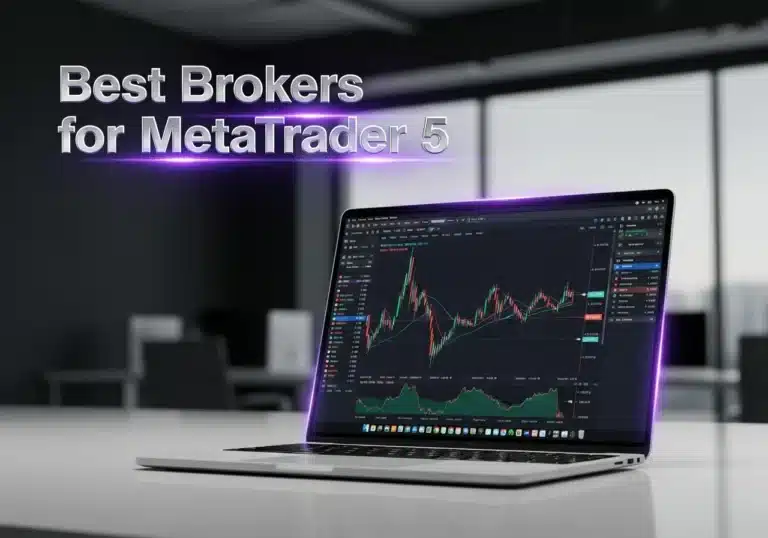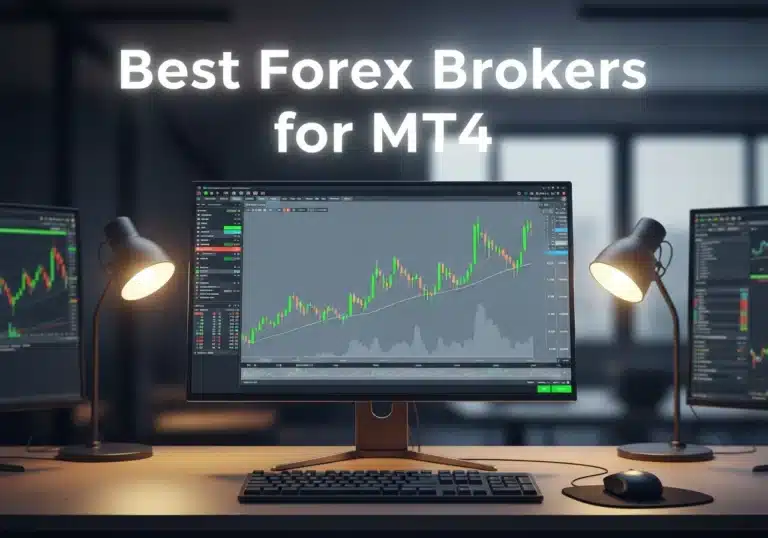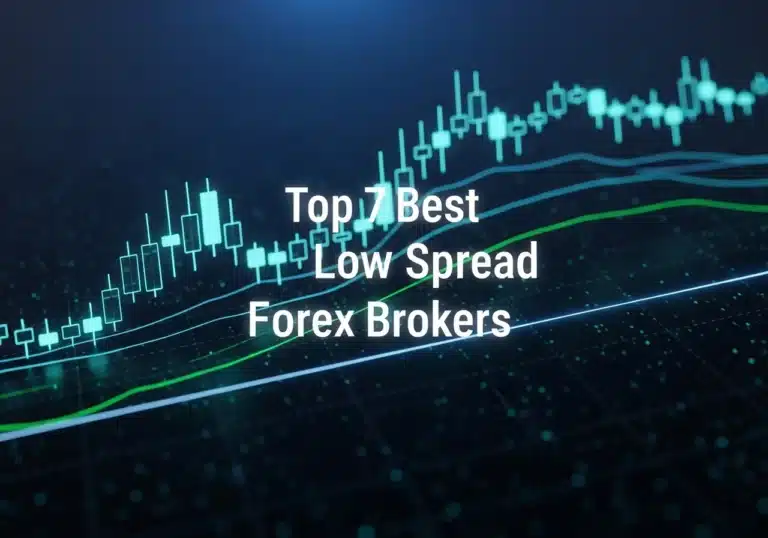Imagine the thrill of executing multiple Forex trades in a single day, only to watch your hard-earned profits slip away. This scenario is all too common for many traders and highlights the perilous habit of overtrading in Forex. Overtrading occurs when traders engage in excessive buying and selling of currency pairs without a solid trading plan, often driven by emotions like greed, fear, or the sheer excitement of the market. This detrimental practice not only erodes your trading capital but also sabotages your long-term success.
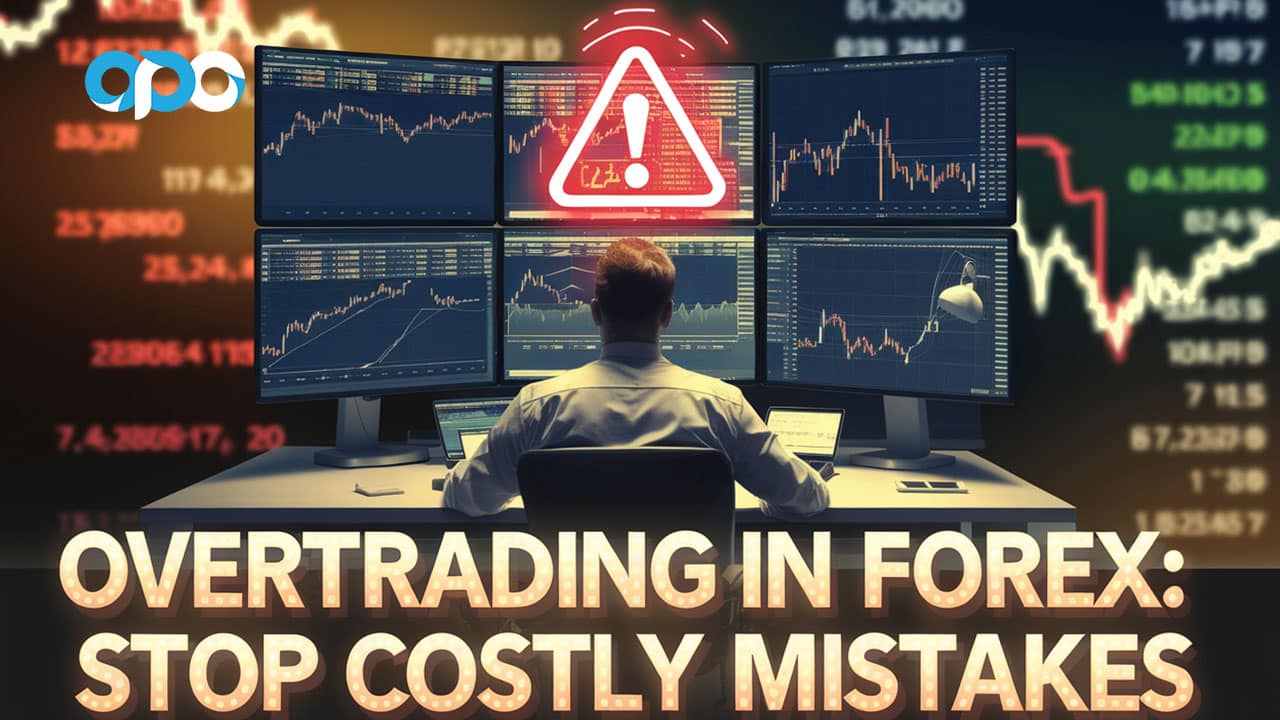
In this comprehensive guide, we will delve deep into the nuances of overtrading in Forex, exploring its definition, underlying causes, various types, associated risks, and, most importantly, actionable strategies to prevent it. Whether you are collaborating with an online Forex broker or a regulated Forex broker, mastering these strategies is crucial for achieving sustainable profitability and maintaining emotional balance in the volatile Forex market.
Pro Tip for Aspiring Traders: Partner with a reputable forex trading broker like OpoFinance to access advanced tools and social trading services that can help you maintain discipline and avoid overtrading.
What Is Overtrading in Forex?
Overtrading in Forex is the practice of executing an excessive number of trades without a clear strategy or proper risk management. This behavior is often fueled by emotional impulses rather than logical analysis, leading to a series of unprofitable trades that can rapidly deplete your trading account.
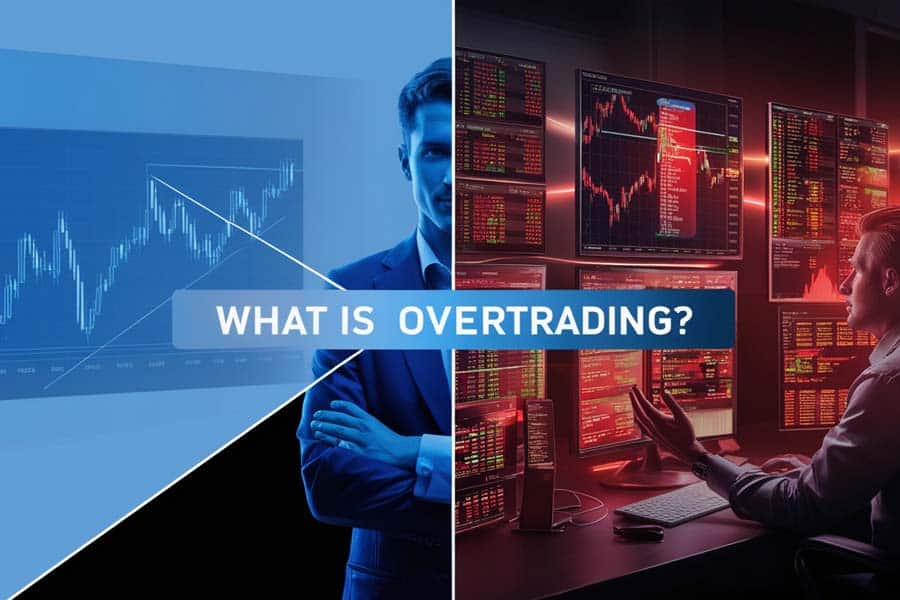
Understand the essence of overtrading and its impact on your success.
Understanding the essence of overtrading is essential for every Forex trader. It involves not just the quantity of trades but also the quality and rationale behind each decision. Overtrading can stem from various psychological and strategic missteps, making it a multifaceted problem that requires a comprehensive approach to address.
Why Recognizing and Preventing Overtrading Matters
Recognizing the signs of overtrading and implementing preventive measures is crucial for several reasons:
- Financial Stability: Prevents significant losses that can jeopardize your trading capital.
- Emotional Well-being: Reduces stress and emotional exhaustion associated with frequent trading.
- Long-Term Success: Promotes disciplined trading habits that lead to sustainable profitability.
- Enhanced Decision-Making: Encourages thoughtful and strategic trade executions.
By addressing overtrading head-on, you can cultivate a disciplined trading approach that enhances both your performance and psychological resilience in the volatile Forex market.
Causes of Overtrading
Overtrading is often the result of a combination of psychological triggers and strategic missteps. Understanding these underlying causes is the first step toward mitigating their impact on your trading activities.
Psychological Triggers
- Greed and the Allure of Quick Profits
- The desire to amass wealth rapidly can lead traders to take excessive risks, believing that more trades will translate to higher profits.
- “The more you chase quick profits, the further you stray from calculated decisions.”
- Example: A trader may enter multiple high-leverage positions in hopes of capitalizing on short-term market movements, ignoring the increased risk associated with each trade.
- Fear of Missing Out (FOMO)
- Observing other traders’ successes or sudden market movements can prompt impulsive trading actions to not miss potential gains.
- Example: Jumping into trades without proper analysis due to a sudden price spike.
- Impact: FOMO can lead to hasty decisions, resulting in trades that are not aligned with your trading plan or market analysis.
- Revenge Trading After Losses
- Experiencing a loss can trigger a desire to recover quickly, leading to reckless trading decisions in an attempt to “make up for it.”
- Revenge trading is like doubling down on mistakes—don’t let emotions drive your trades.
- Example: After a losing trade, a trader might increase their position size to recover losses, which can lead to even greater losses if the market doesn’t move as expected.
- Boredom and Thrill-Seeking
- Trading for the sake of activity or excitement rather than following a strategic plan can result in unnecessary trades.
- Engaging in trading purely for thrills diverts focus from informed decision-making.
- Impact: This can lead to trading without clear objectives or strategies, increasing the likelihood of losses.
- Overconfidence in Trading Abilities
- A series of successful trades can inflate a trader’s confidence, leading to an overestimation of their market understanding and subsequent overtrading.
- Overconfidence blinds traders to the inherent risks of the market.
- Example: A trader might believe they have mastered the market and start taking on larger positions or more trades than their risk tolerance allows.
Strategic Missteps
- Lack of a Clear Trading Plan
- Without defined goals, strategies, and guidelines, traders are more susceptible to making impulsive and uncalculated trades.
- A well-structured trading plan is your roadmap to disciplined trading.
- Impact: This can lead to inconsistent trading behaviors and a higher risk of overtrading.
- Excessive Use of Leverage
- High leverage magnifies both potential profits and losses, tempting traders to open larger positions than their account can sustainably handle.
- Leveraging too much can quickly deplete your trading capital.
- Example: Using maximum leverage on every trade can lead to significant losses, especially during volatile market conditions.
- Absence of Risk Management Strategies
- Failing to implement stop-loss orders, take-profit levels, and proper position sizing exacerbates the risk of overtrading.
- Effective risk management is the cornerstone of successful trading.
- Impact: Without risk management, traders expose themselves to unlimited losses, making it difficult to sustain long-term trading.
Read More: The Hidden Dangers of Overleveraged Trading
Types of Overtrading
Overtrading manifests in various forms, each with its unique characteristics and implications for a trader’s performance.
- Scalping and High-Frequency Trading
- Engaging in rapid, short-term trades without sufficient analysis can lead to overtrading, as traders seek to capitalize on minute market movements.
- Scalping requires precision and discipline to avoid unnecessary trades.
- Example: A scalper might enter and exit multiple trades within minutes, hoping to profit from small price changes, but this can accumulate significant transaction costs.
- News-Based Trading Without Adequate Analysis
- Reacting impulsively to market news or economic indicators without thorough analysis often results in poorly planned trades.
- Informed decision-making is crucial when trading based on news events.
- Impact: Markets can be unpredictable, and reacting without a strategy can lead to losses even if the news is favorable.
- Gambling Mentality in Trading
- Treating Forex trading as a game of chance rather than a strategic investment can lead to reckless trading behaviors.
- Approaching trading with a gambling mindset undermines long-term success.
- Example: Making trades based on gut feelings or random picks instead of research and analysis.
- Volume-Based Overtrading
- Placing an excessive number of trades within a short period drains account capital and increases exposure to market volatility.
- Maintaining a balanced trade volume preserves your trading capital.
- Impact: High trade volumes can lead to significant losses, especially if trades are not based on solid strategies.
- Leverage-Induced Overtrading
- Utilizing high leverage irresponsibly to open larger positions than appropriate amplifies the risk of significant losses.
- Responsible leverage use is key to sustainable trading.
- Example: A trader might use 100:1 leverage on multiple trades, leading to massive losses if the market moves against them.
- Emotional Overtrading
- Allowing emotions like frustration, excitement, or anxiety to dictate trading decisions leads to inconsistent and often unprofitable trades.
- Emotional discipline is essential for consistent trading performance.
- Impact: Emotional trading can result in poor decision-making, deviating from the trading plan and increasing the risk of losses.
Risks Associated with Overtrading
Overtrading carries a host of risks that can severely impact a trader’s financial health and psychological well-being.
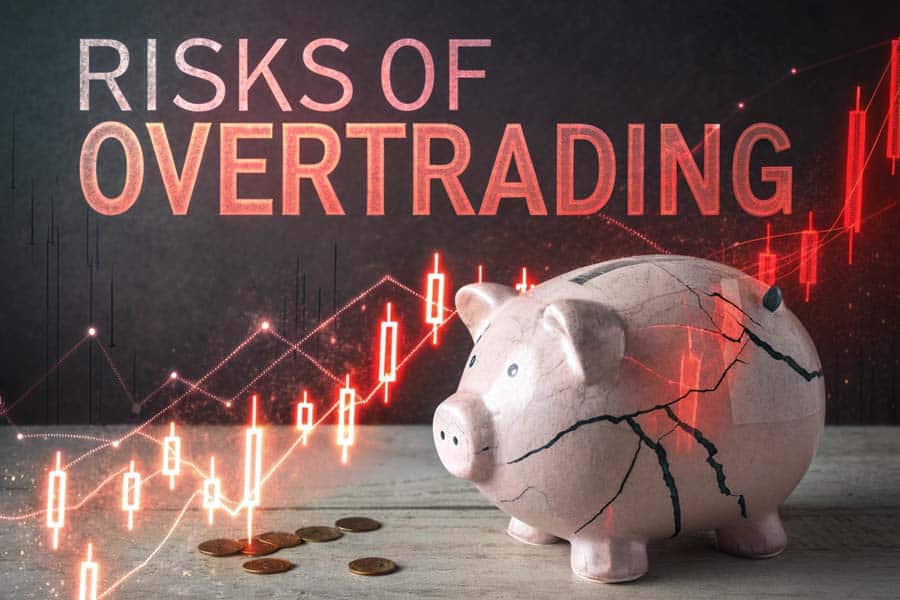
Understand the financial and emotional costs of excessive trading.
- Financial Losses Due to Poor Trade Quality
- Low-quality trades, often the result of overtrading, lead to a diminished account balance and erode trading capital.
- Every poor trade chips away at your financial foundation.
- Increased Transaction Costs
- Frequent trades accumulate transaction fees, commissions, and spreads, which can significantly eat into your profits.
- High transaction costs can turn profitable trades into break-even or loss-making ones.
- Depletion of Emotional and Mental Capital
- Overtrading induces stress and emotional exhaustion, impairing decision-making and leading to further trading mistakes.
- Maintaining emotional balance is crucial for sound trading decisions.
- Potential for Account Depletion
- Reckless trading practices can result in the complete loss of trading funds, leaving traders financially vulnerable.
- Account depletion is a severe consequence that can end a trading career prematurely.
Remember, successful trading is a marathon, not a sprint. Protecting your capital and maintaining emotional resilience are paramount for long-term success in the Forex market.
Read More: Mastering Leverage Trading Risk Management
Strategies to Prevent Overtrading
Implementing effective strategies to prevent overtrading is essential for maintaining a disciplined and profitable trading approach. Below are seven proven methods to help you control your trading behavior and enhance your performance.
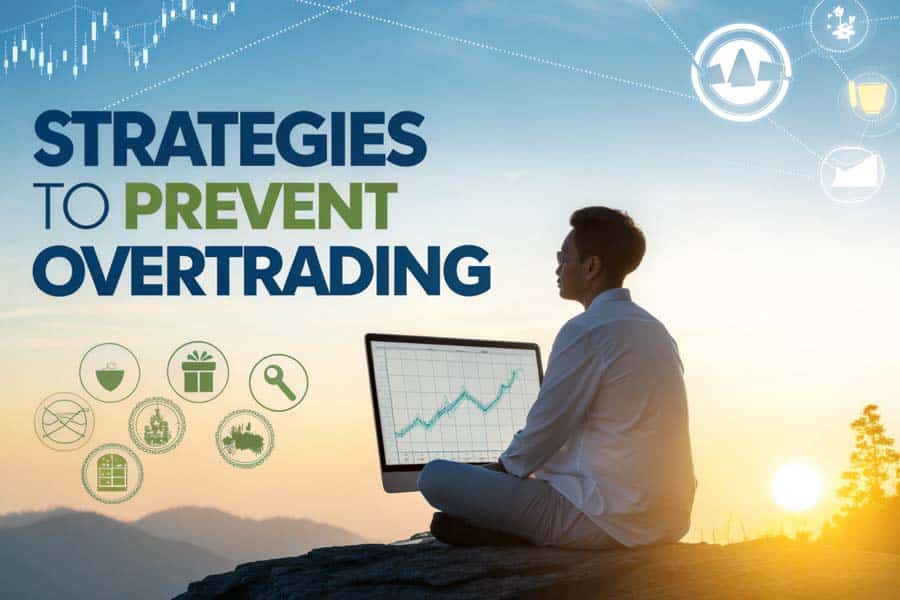
Discover actionable strategies to control your trading habits and stay disciplined.
1. Develop and Adhere to a Comprehensive Trading Plan
Having a clear and detailed trading plan serves as your roadmap, guiding your trading decisions and minimizing impulsive actions.
- Entry and Exit Strategies: Define specific criteria for entering and exiting trades based on technical indicators, fundamental analysis, or other methodologies.
- Risk-Reward Ratios: Establish acceptable risk-reward ratios to ensure that potential rewards justify the risks taken.
- Clear Profit Targets and Stop-Loss Levels: Set predetermined profit targets and stop-loss levels to manage each trade effectively.
Sticking to a well-crafted trading plan helps you stay focused and reduces the likelihood of overtrading.
2. Implement Risk Management Techniques
Effective risk management is the cornerstone of preventing overtrading and safeguarding your trading capital.
- Risk Per Trade: Limit your risk to a small percentage of your trading account (typically 1-2%) to prevent significant losses from any single trade.
- Diversification: Spread your risk across different currency pairs and trading strategies to avoid overexposure to any single market.
- Use of Regulated Forex Brokers: Partnering with a regulated Forex broker ensures access to advanced risk management tools and secure trading environments.
Proper risk management techniques protect your capital and allow for consistent trading performance.
3. Set Clear Trading Rules and Boundaries
Establishing and adhering to specific trading rules helps maintain discipline and prevents impulsive trading decisions.
- Daily or Weekly Trade Limits: Set a maximum number of trades you can execute each day or week to avoid overtrading.
- Time-Based Restrictions: Allocate specific times for trading and avoid trading outside these periods to reduce impulsive actions.
- Adherence to Strategy: Ensure that every trade aligns with your predefined trading strategy and objectives.
Clear trading rules provide structure and prevent deviation from your trading plan.
4. Maintain a Trading Journal
Keeping a detailed trading journal allows you to track and analyze your trading activities, helping you identify patterns and areas for improvement.
- Record Every Trade: Document the details of each trade, including entry and exit points, position size, and reasons for taking the trade.
- Emotional State: Note your emotional state before, during, and after each trade to recognize how emotions influence your trading behavior.
- Performance Analysis: Regularly review your trading journal to assess your performance and identify tendencies toward overtrading.
A trading journal serves as a valuable tool for self-assessment and continuous improvement.
5. Limit Screen Time to Avoid Impulsive Decisions
Spending excessive time monitoring the markets can lead to fatigue and impulsive trading actions.
- Scheduled Trading Sessions: Define specific periods for active trading and avoid unnecessary screen time outside these sessions.
- Use Alerts and Notifications: Set up alerts for key market events or price levels to stay informed without constant monitoring.
- Engage in Other Activities: Balance your trading with other productive activities to maintain mental clarity and reduce the urge to overtrade.
Limiting screen time helps maintain focus and reduces the temptation to engage in unnecessary trades.
6. Take Regular Breaks to Maintain Mental Clarity
Taking breaks from trading is essential for maintaining mental sharpness and emotional balance.
- Scheduled Breaks: Incorporate regular breaks into your trading schedule to rest and recharge.
- Physical Activity: Engage in physical activities during breaks to reduce stress and enhance overall well-being.
- Mindfulness Practices: Incorporate mindfulness or relaxation techniques to maintain emotional equilibrium.
Regular breaks prevent mental fatigue and help sustain disciplined trading behavior.
7. Utilize Technology and Automation
Leveraging technology can significantly reduce the risk of overtrading by automating your trading strategies and minimizing emotional interference.
- Automated Trading Systems: Use trading bots or automated strategies to execute trades based on predefined conditions, ensuring consistency and adherence to your trading plan.
- Trading Alerts: Set up automated alerts for specific market conditions to make informed decisions without constant monitoring.
- Analytics Tools: Utilize advanced analytics and reporting tools to monitor your trading performance and identify areas prone to overtrading.
Embracing technology ensures that your trading remains disciplined and strategically aligned, reducing the likelihood of overtrading.
Pro Tips for Advanced Traders
For those who have mastered the basics and are looking to refine their trading strategies further, here are some advanced tips to prevent overtrading and enhance your Forex trading success.

Leverage advanced strategies and tools to refine your trading expertise.
- Diversify Trade Types
- Balance short-term trades with long-term positions to avoid overexposure to any single market movement.
- Diversification reduces the risk associated with overtrading in a specific market.
- Leverage Social Trading Platforms
- Platforms like OpoFinance’s social trading allow you to follow and replicate the strategies of top-performing traders.
- Social trading fosters disciplined trading practices by emulating successful strategies.
- Focus on Quality Over Quantity
- Prioritize well-researched and high-probability trades instead of aiming for a high number of trades.
- Quality trades lead to sustainable profitability, unlike the fleeting gains from quantity-based trading.
- Automate Strategies
- Use trading bots or automated strategies to execute trades based on pre-set conditions, minimizing emotional interference.
- Automation ensures consistency and adherence to your trading plan, reducing the risk of overtrading.
- Advanced Risk Management
- Implement sophisticated risk management techniques like dynamic position sizing and hedging strategies.
- Advanced risk management safeguards your capital against market volatility and reduces the temptation to overtrade.
- Continuous Learning and Adaptation
- Stay updated with the latest market trends, tools, and strategies to refine your trading approach continually.
- Continuous education equips you with the knowledge to make informed and strategic trading decisions.
- Mentorship and Peer Review
- Engage with experienced traders or join trading communities to gain insights and receive feedback on your trading strategies.
- Mentorship provides accountability and diverse perspectives that can enhance your trading discipline.
Implementing these advanced strategies can significantly enhance your trading discipline and profitability.
Read More: Margin in Forex
OpoFinance Services: Trade Smarter
When it comes to preventing overtrading and enhancing your Forex trading experience, partnering with a reliable broker is paramount. OpoFinance stands out as a premier choice for traders seeking security, advanced tools, and exceptional services.
- ASIC-Regulated Forex Broker
- Ensures transparency, security, and adherence to strict regulatory standards, providing peace of mind for your trading activities.
- Featured on the MT5 Brokers List
- Access cutting-edge trading platforms like MetaTrader 5, offering advanced charting tools, automated trading capabilities, and a seamless trading experience.
- Safe and Convenient Deposits and Withdrawals
- Enjoy hassle-free transactions with a variety of secure and efficient deposit and withdrawal methods tailored to your needs.
- Social Trading Services
- Leverage OpoFinance’s social trading platform to follow and replicate the strategies of top-performing traders, fostering disciplined and informed trading practices.
Choose OpoFinance to elevate your trading game with unmatched security, advanced tools, and comprehensive services.
Sign Up Now and Explore OpoFinance
Conclusion
Overtrading in Forex is a significant obstacle that can derail your trading career, leading to financial losses and emotional burnout. By understanding what overtrading in Forex entails and recognizing its underlying causes, you can take proactive steps to prevent it. Implementing robust strategies such as developing a comprehensive trading plan, practicing effective risk management, setting clear trading boundaries, and maintaining discipline are essential for mitigating the risks associated with overtrading.
Furthermore, leveraging advanced tools and services from reputable brokers like OpoFinance can provide the support and resources needed to maintain disciplined trading practices. Remember, successful Forex trading is not about the number of trades you make but the quality and strategic planning behind each one.
Key Takeaways
- Overtrading Definition: Executing excessive and impulsive trades without a strategic plan.
- Primary Causes: Emotional triggers like greed, fear, boredom, and strategic missteps such as lack of a trading plan and excessive leverage.
- Prevention Strategies: Develop and adhere to a trading plan, implement risk management techniques, set clear trading rules, maintain a trading journal, limit screen time, and take regular breaks.
- Advanced Tips: Diversify trade types, leverage social trading platforms, focus on quality over quantity, automate strategies, practice advanced risk management, and commit to continuous learning.
- The path to Forex success lies in disciplined, strategic trading rather than the sheer number of trades executed.
What are the early signs of overtrading in Forex?
Early signs include trading outside your plan, taking unnecessary risks, experiencing emotional distress during trades, and noticing a decline in trade quality and profitability. Additionally, feeling the need to constantly be in the market or struggling to stick to your trading rules can indicate overtrading.
How can I overcome the fear of missing out (FOMO) in Forex trading?
To overcome FOMO, set realistic trading goals and remind yourself that not every market movement warrants a trade. Stick to your trading plan, use limit orders to enter trades at predefined levels, and practice patience. Developing confidence in your strategy and accepting that some opportunities will pass can also help mitigate FOMO.
Can automation tools help prevent overtrading?
Yes, automation tools and trading bots can execute trades based on predefined conditions, minimizing emotional interference and impulsive trading decisions. By adhering strictly to your trading strategy, these tools help maintain discipline and prevent the tendency to overtrade.


